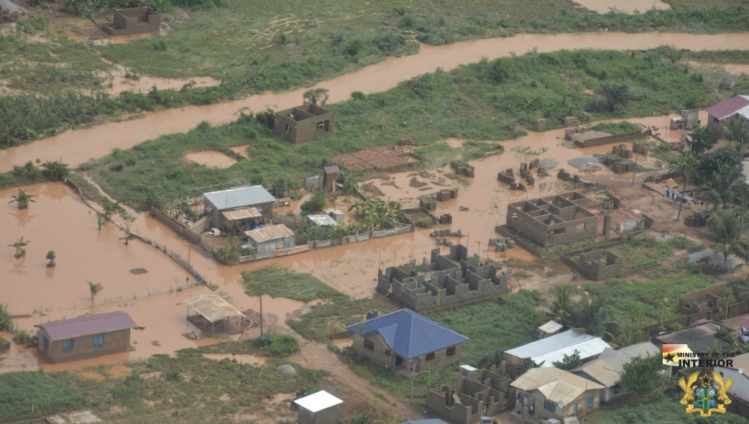It is emerging that the $100 billion promised African countries annually by the developed nations to mitigate the negative impact of climate change may not be honoured.
Though African countries are contributing less than 3 percent of the world's emissions, the continent is rather bearing the brunt.
The G-20 accounts for 80% of greenhouse gas emissions but poorer countries, especially in Africa, bear the brunt of climate change.
Rich nations pledged in 2009 to give developing countries $100 billion a year to help them deal with climate change, but the target date was pushed back to 2023 at the beginning of the COP26 summit.
But at Ghana’s official side event in the ongoing climate change conference in Glasgow, one of Ghana’s negotiators from the Ministry of Finance, Foster Aboagye-Gyamfi revealed how the G20 countries are making a U-Turn on their pledge.
According to Mr Aboagye-Gyamfi, many of the rich countries are reneging on their commitment to providing soft financing and are rather focusing on a push for loans "which I think is not helping very much."
"Because, it means the developing countries would have to be paying for these things in future and I'm sure it will deter the developing countries from achieving much from there," he said.
Also at this event was the Executive Director of the Environmental Protection Agency, Dr. Henry Kokofu who revealed that Ghana is in need of about $15 billion to help implement its strategies on dealing with climate change challenges.
"Ghana requires between $9.3 billion and $15.5 billion of investment in order to fully realise the implementation of the 47 Nationally Determined contribution measures from 2020 to 2030. Out of that, 3.9 billion would be needed to implement the 16 unconditional programmes of action till 2030.
"The remaining 5.4 billion for the title one conditional programmes of vaccine would be mobilised from the public, international and private-sector sources, and carbon markets. And here again, it is important to note that the current capital markets point clearly to the fact that the private sector holds almost two-thirds of the funding sources," he added.
Latest Stories
-
Ghana adopts Abrahamic ethical banking model
21 minutes -
AMA sanitation court convicts food vendor in landmark case as by-law enforcement intensifies
30 minutes -
Speaker of Parliament calls for parliamentary debate on 24-hour economy policy
35 minutes -
Minority demands Mahama’s response to suspended Chief Justice’s concerns
36 minutes -
Elikplim Akurugu pledges support for education at Ga East conference
39 minutes -
‘I’m fed up with politics in Ghana’- Speaker Bagbin
39 minutes -
Useless Column: ‘Armpit Powers’
42 minutes -
Bank of Ghana stresses need for more financially literate journalists
45 minutes -
Gov’t reschedules meeting with GRNMA to July 10 following abotive meeting
54 minutes -
Maiden edition of West African Talent Hunt ends in Accra after three days
55 minutes -
World Vision Ghana and VisionFund Ghana not affiliated with fraudulent loan scheme
57 minutes -
Socrate Safo paved the way for my Multimedia break – KMJ recounts media journey
1 hour -
Tamale: Persons with disabilities propose constitutional backing for retirement with salary
1 hour -
Photos: Nana Gyan-Apenteng remembered at 40-day observance
1 hour -
Over 150 shops closed at Tech Junction in Kumasi as GRA cracks down on tax defaulters
1 hour

